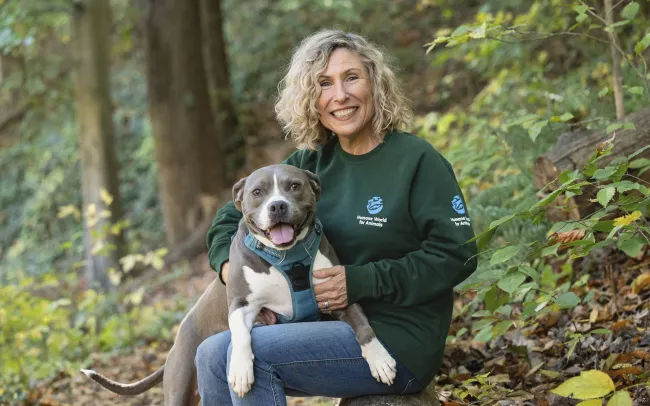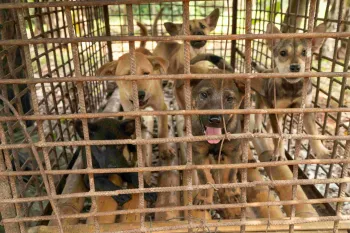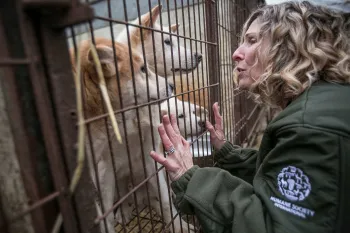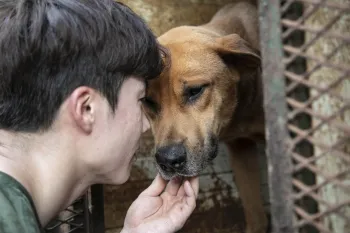Ahead of the first Bok Nal since the passage of the Special Act to ban the dog meat industry in South Korea, people gathered in a hopeful celebration at Cheonggye Plaza in Seoul. The event was organized by a coalition of animal protection groups, including our team at Humane Society International/Korea.
Bok Nal is a month-long period in July and August that marks the three hottest days of the year according to the lunar calendar. At this time, people eat many different types of food they believe help ease the heat. One of these dishes is a dog meat soup called “bosintang.”
Although most Koreans don’t eat dog meat, Bok Nal has traditionally been a time when more people than usual would eat bosintang. But times have changed. Appetite for bosintang is at an all-time low, and Korean media reported that ahead of Chobok, the first Bok day, the normally bustling dog meat restaurants in ”Bosintang Alley” in Seoul were virtually deserted at lunchtime. Dog meat restaurants report dramatically reduced sales and significant drops in reservations since the ban was announced.
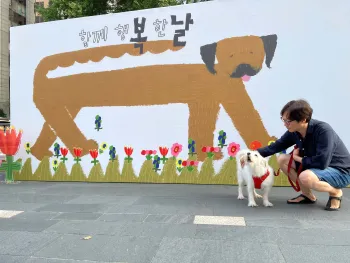
Haewon Lee/HSI
The celebration at Cheonggye Plaza paid tribute to all the dogs who have suffered and died because of the dog meat industry. People chanted, calling for the peaceful coexistence of dogs and people. Singer Annie Ko from electro-indie band Love X Stereo, who adopted a dog rescued from a meat farm by our team in South Korea, sang a song about freedom.
People gathered around a mural created for the event by Korean artist Kim Chamsae showing a happy tosa dog, a breed typically exploited for the meat industry. They placed flower stickers at the dog’s feet, representing a life of freedom as a companion animal rather than as an animal raised for meat.

Haewon Lee/HSI
The South Korean government is in the process of establishing the guidelines to help end the industry by February 2027. This year, if dog meat farms, slaughterhouses and restaurants submit a closure implementation plan by Aug. 5, the government will review their plans to determine whether they’ll receive financial support to close or transition to a new business. The government is expected by September to publish a plan to end the industry, which will include practical details of how it intends to phase out the estimated 1,507 dog meat farms, 163 dog slaughterhouses, 2,276 dog meat restaurants.
HSI/Korea’s Models for Change program has provided the blueprint for these transitions. Since 2015, we have worked with 18 dog meat farmers, providing one-off grants to help them move from the dog meat industry into other animal-free livelihoods.
Instead of converting dog farms to rear other animals such as black goats or pigs, dog farmers should capitalize on growing interest in plant-based eating by opting to plant crops instead, just like Mr. Yang, the most recent dog farmer we’ve helped transition to farming vegetables. A 2021 Statista survey estimates that up to 2.5 million people in South Korea identify as vegan, bolstering the argument for livelihoods that are both sustainable and compassionate.
“We hope that dog meat farmers take this opportunity to switch from dog farming to crop growing instead of farming other animals for human consumption,” says Borami Seo, director of government affairs for our team in South Korea. “There is a growing market in South Korea for plant-based foods, so dog farmers have a chance to become part of the plant-based revolution that is better for animals, human health and the planet.”
Follow Kitty Block @HSUSKittyBlock.

